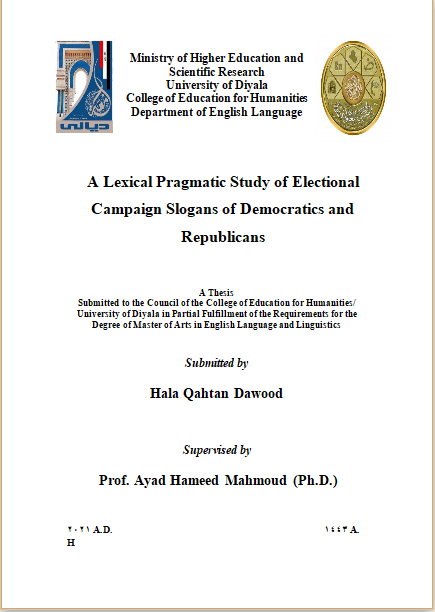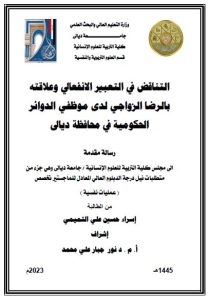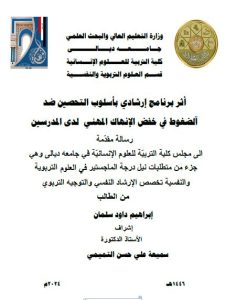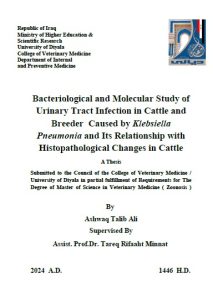Abstract
In spite of the increasing role of slogans in election campaigns all over the world, there still exists an obvious gap to be filled by approaching these slogans from the perspective of lexical pragmatics. The problem addressed in this study is simply represented by the sort of uncertainty that may exist over the type of Lexical Pragmatic (LP) processes employed by the designers of these slogans and the strategies they employ to influence their addressees and get them involved into these slogans. The study is intended to investigate the slogans employed in Democrats and Republicans' posters and political speeches in the American presidential election campaigns.
The study is based on the hypotheses that both Democratic and Republican candidates depend heavily on narrowing and broadening processes to convey their ideas and intended messages, and that every candidate uses slogans to claim good things on his part, and claim bad things on the other′s part. It is also hypothesized that Democrats and Republicans show similarities and differences in terms of the type of LP processes they use.
To achieve the aims of the study and verify its hypotheses, two types of procedures have been adopted: theoretical and practical. The theoretical procedures consist of presenting a theoretical framework of lexical pragmatics including its basic principles, its processes and some related studies. On the other hand, the practical procedures consist of selecting twenty slogans from U.S. News & World Report, The Washington Post, NPR (National Public Radio), The New York Times, BBC (British Broadcasting Corporation), WBUR (Boston’s NPR News Station), The Washington Times, Fast Company, The New Yorker, Iowa Public Radio (IPR). The selected slogans have been analyzed in the light of an eclectic model, and the obtained results have been analyzed using suitable statistical tools.
The results of the selected slogans have shown that both Democrats and Republicans depended heavily on narrowing and broadening processes in the slogans they use in political speeches and posters. The results have also shown some similarities and differences between the two groups of slogans in terms of the employed LP processes. These results verify the hypotheses adopted in the study.
The study ends with a number of recommendations and suggestions for further studies based on the study findings.





